Please feel free to contact us if you are interested in our products or want to know more details or the latest price. We sincerely hope to cooperate with customers all over the world! Send your inquiry now!
Cooking oil processing machines which can process various oil seeds, including peanut, soybean, sunflower seed, palm, palm kernel, sesame, rapeseed, cotton seed, etc.,
low cost and refining process of edible oil in bangladesh
- Use: edible oil
- Type: edible oil refining equipment
- Voltage: 220V/380V
- Power(W): according to the specification of cooking oil refining equipment
- Dimension(L*W*H): according to the specification of cooking oil refining equipment
- Weight: according to the specification of cooking oil refining equipment
- Certification: ISO9001
- Function: cooking oil refining equipment
- Application: cooking oil refining equipment
- Raw material: Vegetable Seed
- port: qingdao
- engineer abroad service: Yes
- factory strength: more than 30 years experience
- Spare parts: supply
- Warranty: 1year
- guide installation service: yes
- type: cooking oil refining equipment
- Market: bangladesh
Edible vegetable oils from oil crops: Preparation, refining
In general, refining is a necessary process to ensure the quality of edible oils. It is very important to remove unnecessary components while retaining the important components of the oils. However, the refining process may cause oxidation of the oils and produce unfavourable degradation products, which may affect the quality of the oils.
Our edible oil production process line portfolio. After oil clarification (for pressed oils), the oil can be refined as shown below. The crude oil is then transferred either to special degumming in the physical refining route, to water degumming, or directly to neutralization in the chemical refining route.
A Comprehensive Guide to the Edible Oil Refining Process.
The refining process is like giving it a spa treatment. Crude palm oil, as the name suggests, isn't perfect yet. It contains some things we don't want, like impurities and odors. That's where refining comes in. Hence, in the second stage of palm oil process, we discuss refinery process of crude palm oil. Refinery of Crude Palm Oil
cost-efficiency problems in the edible oil industry (Subramanian et al. 2004). associated with NTGS-2200 membrane separation prove a low cost-efficiency industrial . The physical refining
Refining of edible oils: A critical appraisal of
The major sources of dietary lipids are edible oils, which include both vegetable and fish oils. Crude oil extracted from vegetable and fish sources contain mono-, di-, triacylglycerols along with
1. Introduction. Refining of crude oil is done to remove unwanted minor components that make oil unappealing to consumers. The conventional methods of oil refining mainly employ chemicals that affect the oil quality, stability, recovery and also generate high volume, low value by-products.
Edible oil refining
Edible oil refining is a set of processes or treatments necessary to turn vegetable raw oil into edible oil.. Raw vegetable oil, obtained from seeds by pressing, solvent extraction, contains free fatty acids and other components such as phospholipids, waxes, peroxides, aldehydes, and ketones, which contribute to undesirable flavor, odor, and appearance; for these reasons, all the oil has to be
Table 2. Refining targets for various minor components in edible oils: Minor component: Refining target (concentration in fully refined oil) trans Fatty acids <1.5% for oils rich in linolenic acid (soybean oil, rapeseed oil, canola, etc.)
Edible Oil Plant Supplier. Edible Oil Press Machines. Oil
It is to extract the oil from the oil material by pressing. four types of oil pressing are usually used. 1, Single pressing is usually applied at small-capacity oil milling plants. 2, Pre-pressing is for larger capacities oil mill plants. 3, Hot Pressing is to cook the oil seeds before pressing to get a high oil press yield. 4, Cold Pressing is to press oil seeds using only the application of
However, the crude palm oil that has been extracted contains unwanted impurities and requires a refining process to partially or eliminate them to produce edible oil. In the current scenario, palm oil is widely used in tropical countries in South East Asia, Africa, and parts of Brazil for cooking purposes.
Why is refining edible oil important?
Refining of edible oil by chemical or physical processes aims towards removing the undesirable impurities that affect oil quality and stability. Understanding the chemical nature of oil and associated impurities is important to designing refining steps.
What are the two main industrial processes for vegetable oil refining?
The two main industrial processes for vegetable oil refining are chemical and physical refining, as described in Figure 11. ... PDF | The major sources of dietary lipids are edible oils, which include both vegetable and fish oils. Crude oil extracted from vegetable and fish... | Find, read and cite all the research you need on ResearchGate
What is deodorization in edible oil refining?
Deodorization is the last step in edible oil refinin g. It is basically a va cuum- other v olatile odoriferous components that cause the un desirable fla vors and odor s. cyclopropenoid fa tty acids. Deodorization de sign is influ enced by four operating variables, w hich inc lude v acuum, temper ature, stripping rat e, and reten tion time. F or
Does crude oil require refining?
Crude oil necessitates re?ning. The main objective of re?ning is to remove the contaminants that adversely a?ect the quality of oil, thereby reducing the shelf life and consumer acceptance. However, this re?ning process cies, geographical location of the source and method of oil extraction. Recently, extensive e?orts have
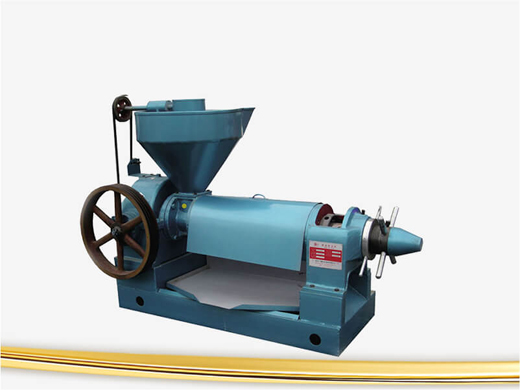
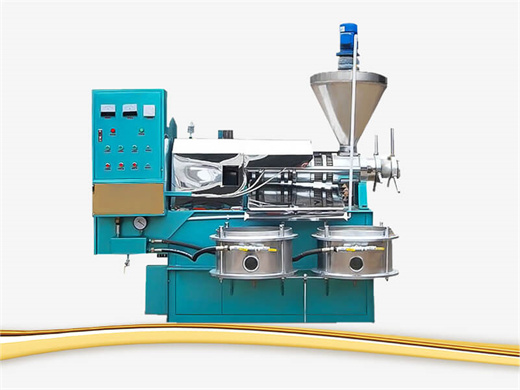
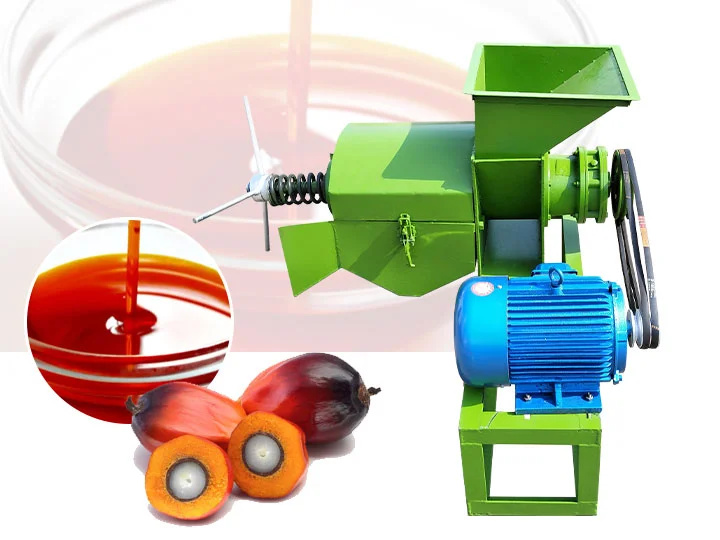
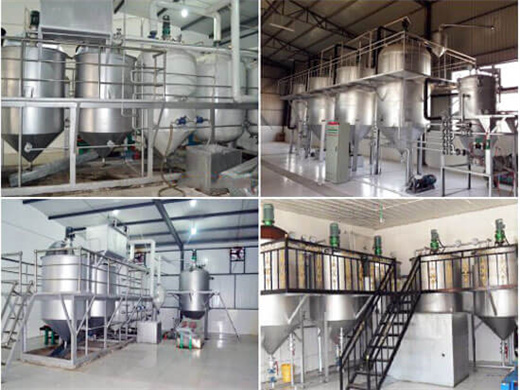
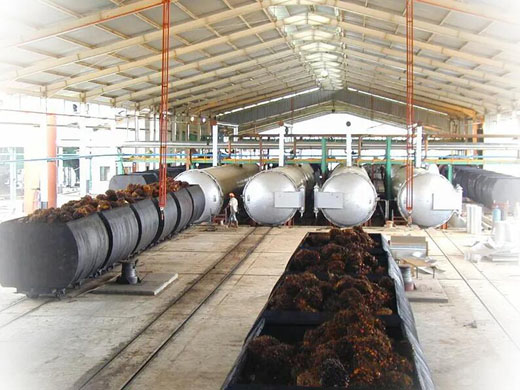
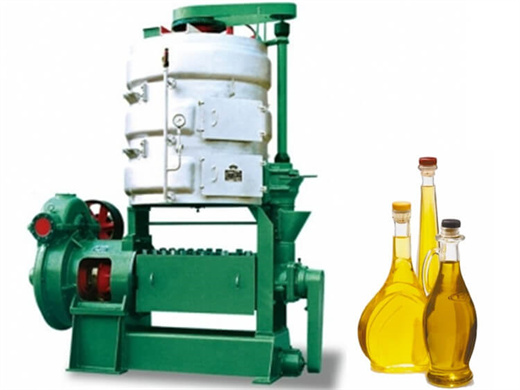
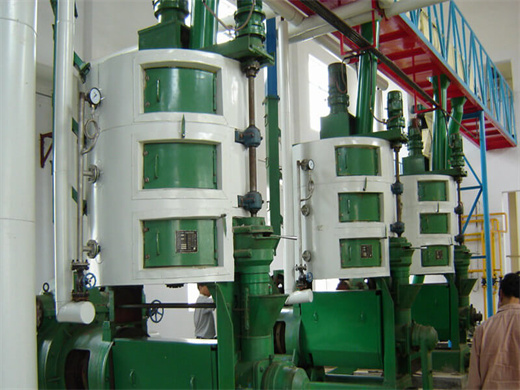
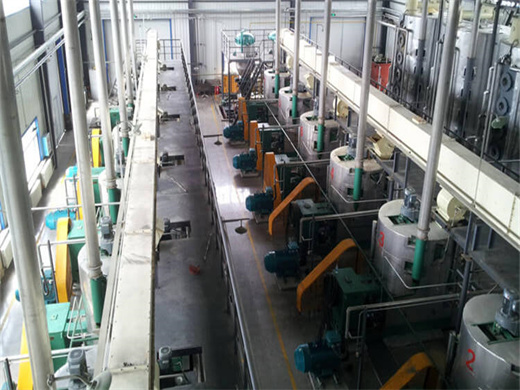




















REQUEST A QUOTE
Submit your enquiry, Our professional team will reply to you within one business day.Please feel free to contact us!